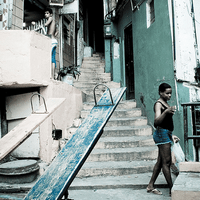RIO DE JANEIRO -- Two years ago, former Brazilian President Fernando Henrique Cardoso led the call for a "paradigm shift" (.pdf) in the country's drug policy. Instead of squelching supply through policing, Cardoso advocated for reducing demand by treating drug abuse as a public health issue.
Cardoso's appeal won plaudits from analysts who have grown impatient with a U.S.-led anti-drug policy that many argue has increased violence without significantly stemming drug abuse. But now it appears that Brazil not only remains committed to treating drugs as a problem for the police, it is also in the process of becoming the first country in Latin America whose drug use is pushing it to adopt a more aggressive foreign policy towards its neighbors.
In an interview with Radio Globo in late May, opposition presidential candidate José Serra called neighboring Bolivia an "accomplice" to Brazil's drug traffickers. Serra, himself a member of Cardoso's Brazilian Social Democracy Party, later told Istoé Magazine that Brazil should militarize its border, perhaps creating a special unit of the military police to handle the job.

